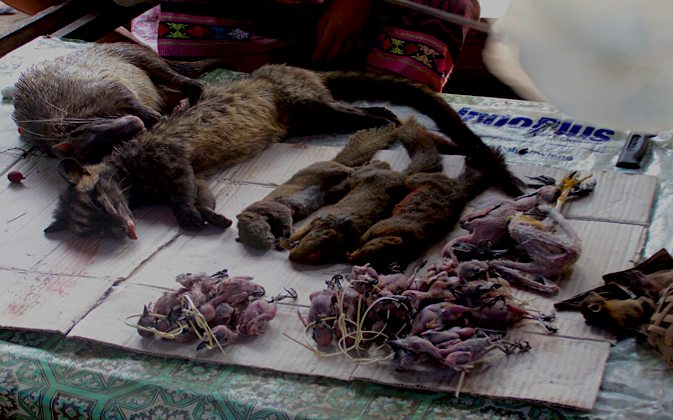Lao PDR-Cambodia One Health Surveilllance and Laboratory Network (LACANET)

Wildlife trade and consumption has contributed to the emergence of several zoonotic diseases including SARS, plague, HIV, monkey pox virus and more. Through wildlife trade, animals move along trade/import/export routes, increasing their exposure to a broader geographic and taxonomic range of other animals, linking previously spatially distinct populations and enhancing the potential for pathogens to spread between diverse taxa regionally and internationally. In addition, the crowded and stressful conditions to which animals are exposed to during trade facilitate disease expression and viral shedding. When humans encounter traded wildlife – through handling, consumption or more passive exposure through contact with excreta – they risk contracting pathogens carried by the wildlife. More needs to be understood on the role of wildlife and its trade in diseases outbreaks of regional importance to mainland Southeast Asia (typhus, anthrax, rabies, leptospirosis and trichinella). The project aims to provide valuable information on the prevalence of these pathogens in wildlife found in markets and help to guide disease outbreak response and mitigation/prevention strategies.
Photo Credit: ‘Wildlife stall in LAO PDR market’ by Lucy Keatts WCS
Participants

Lucy Keatts
Contacts
Mathieu Pruvot
Position: Wildlife Epidemiologist and WCS LACANET Project Lead Email: mpruvot@wcs.org
